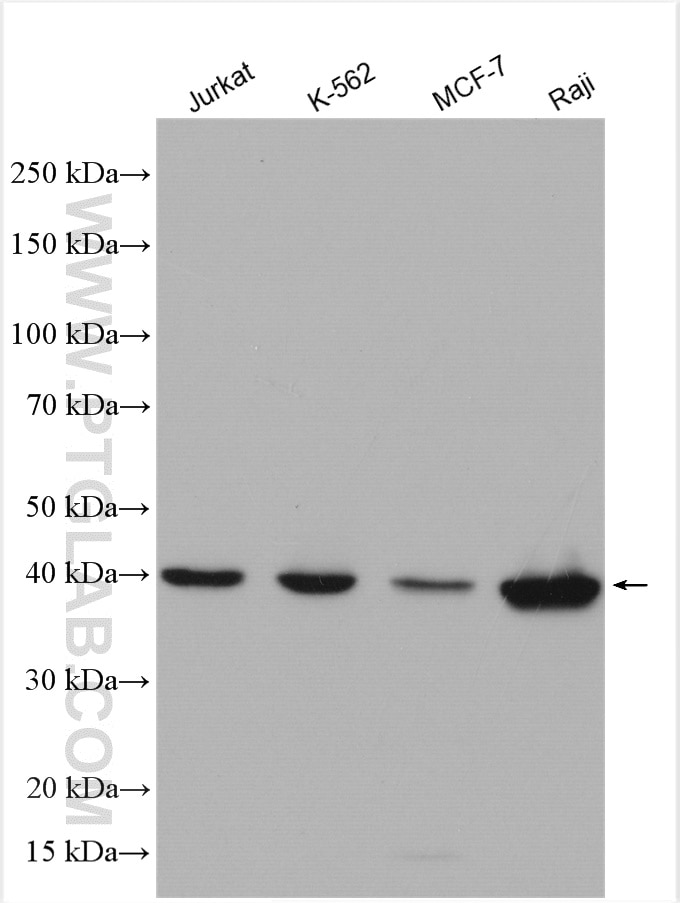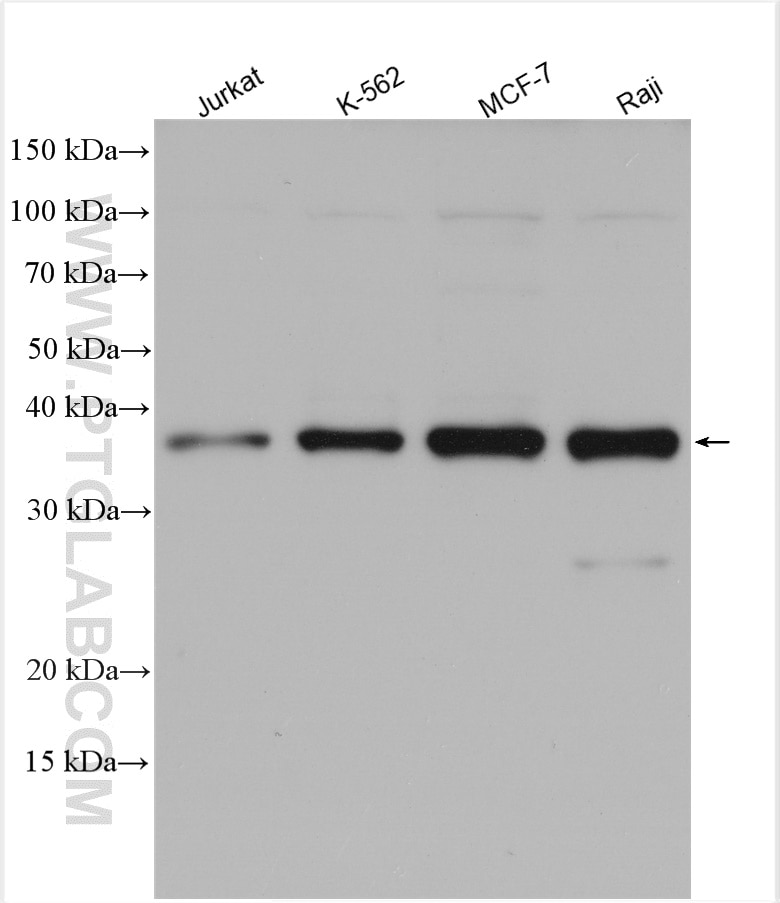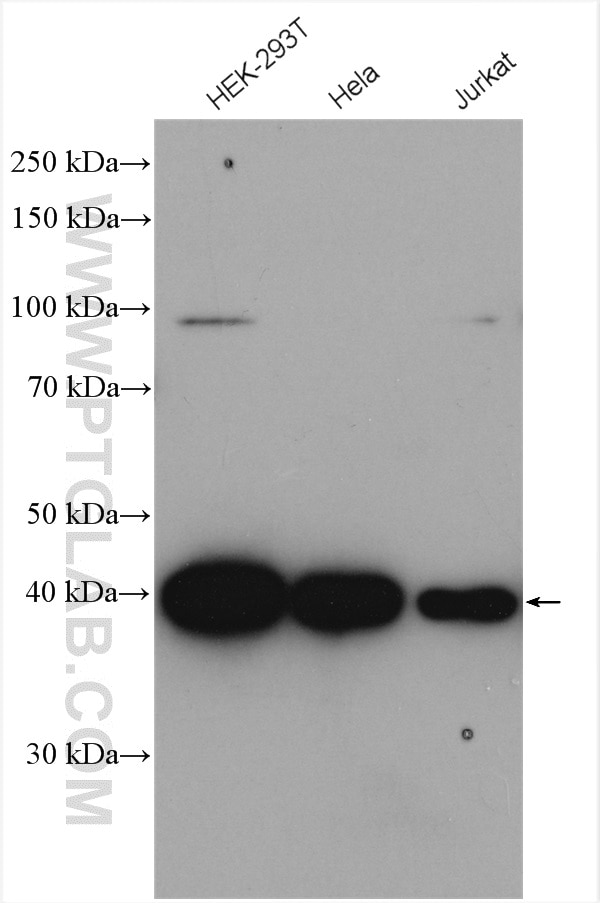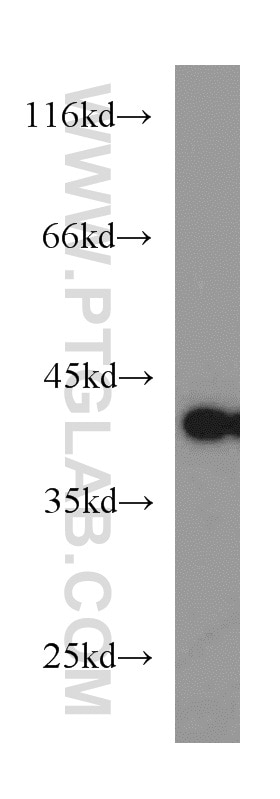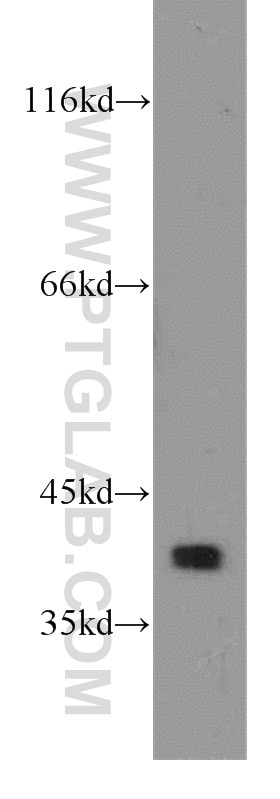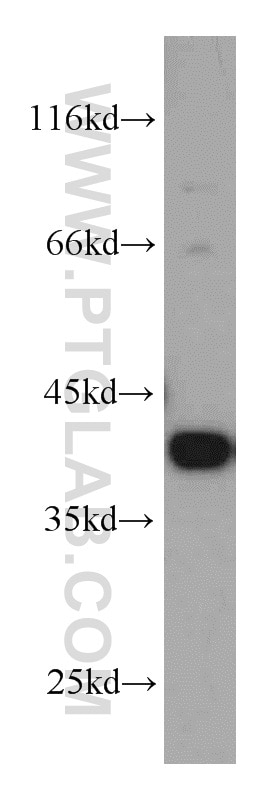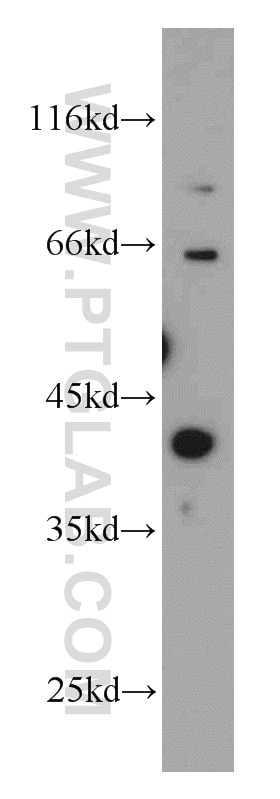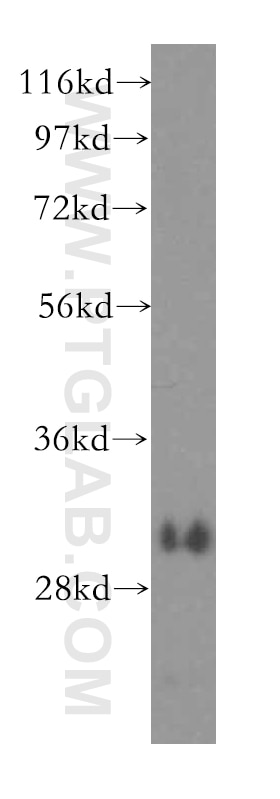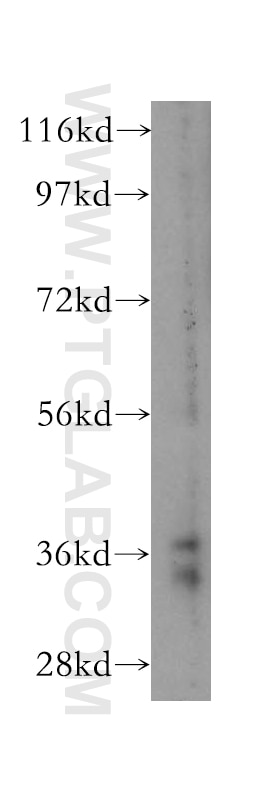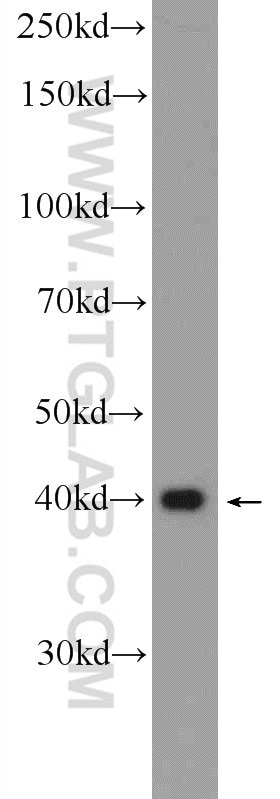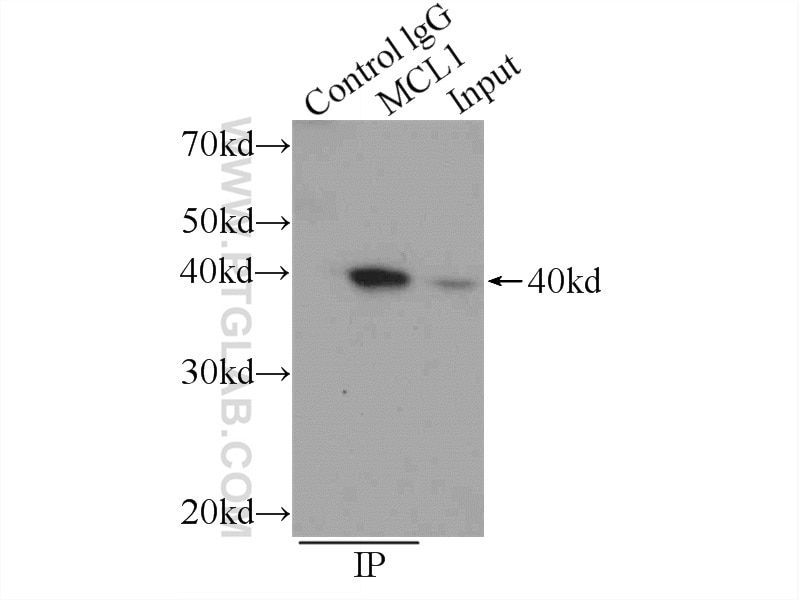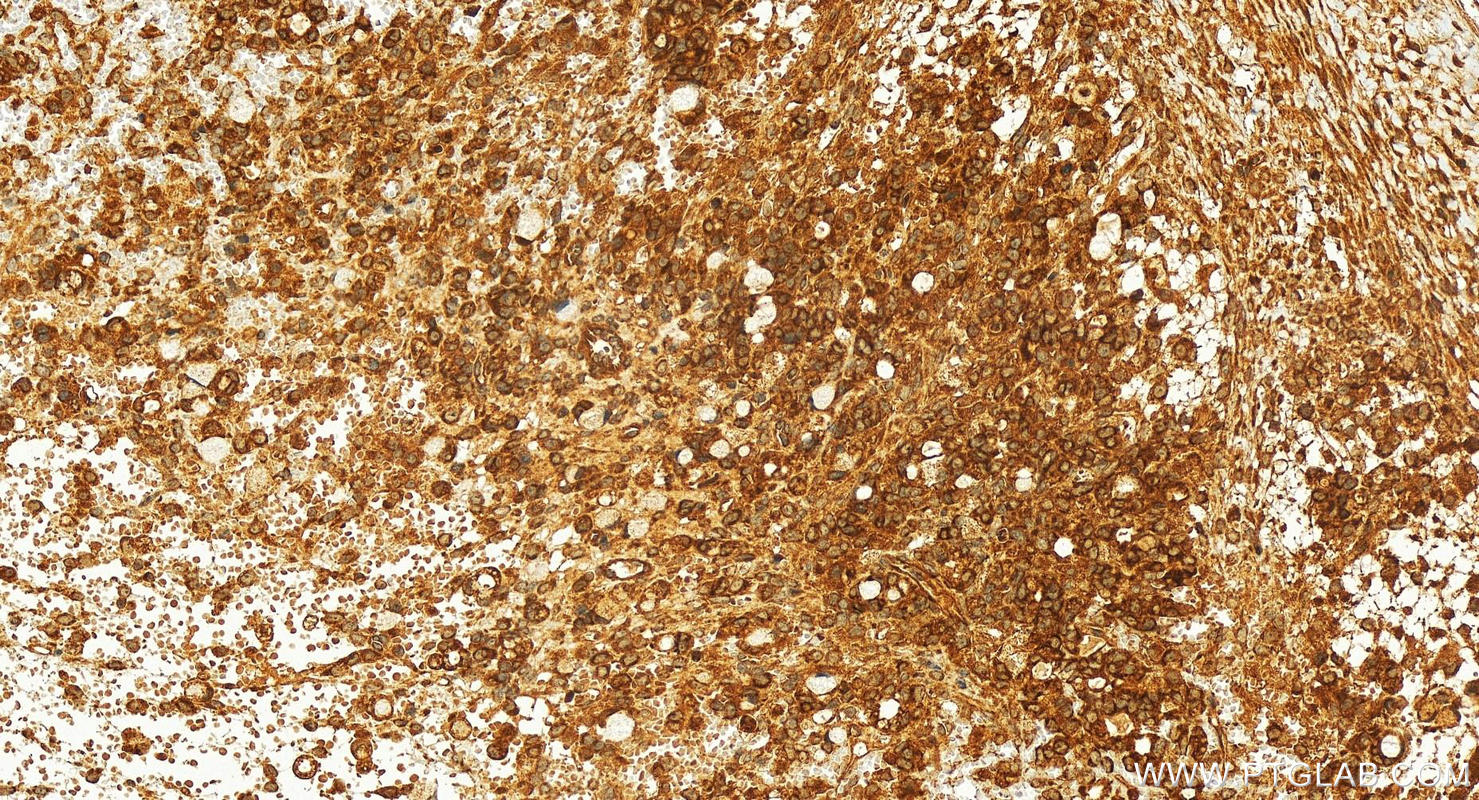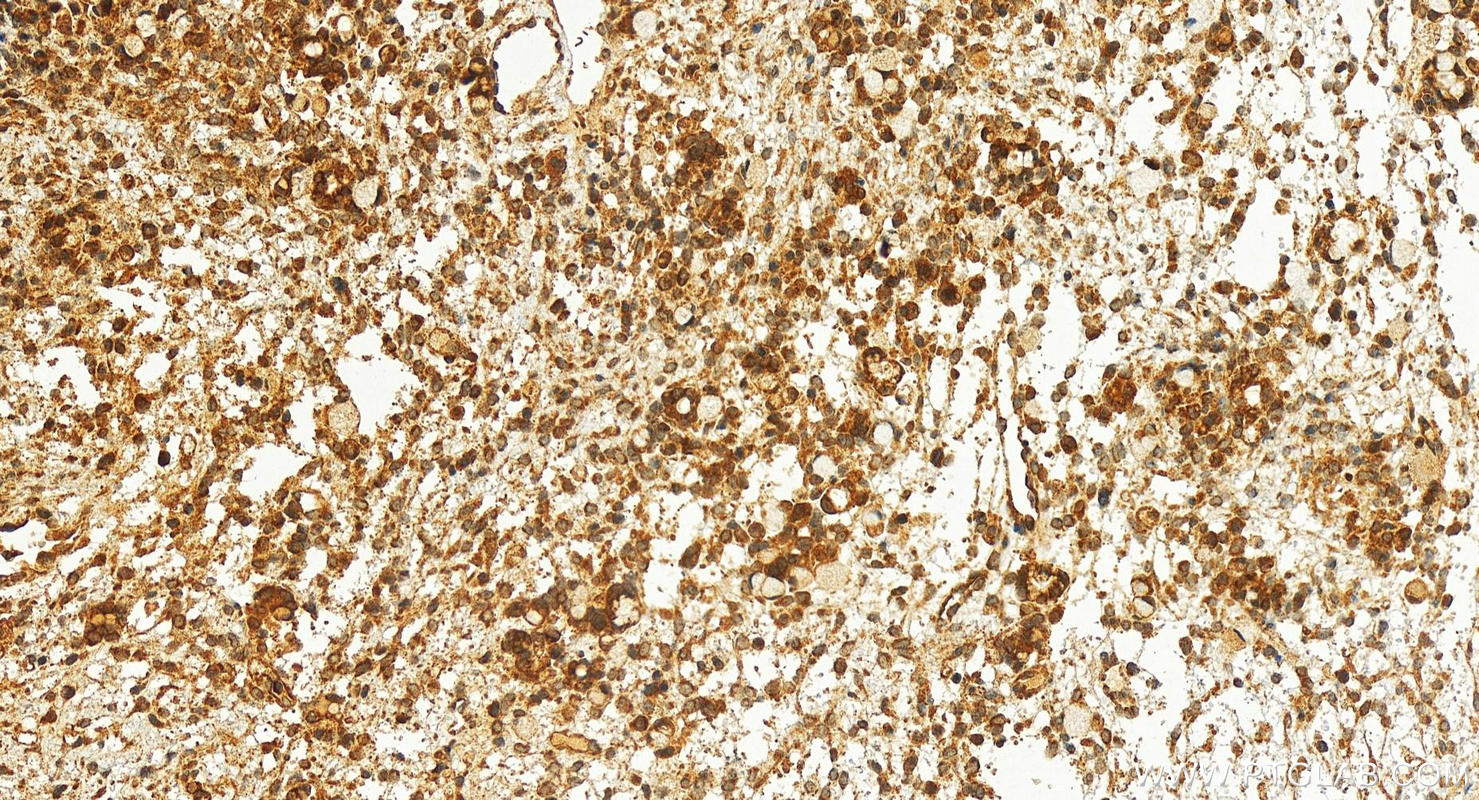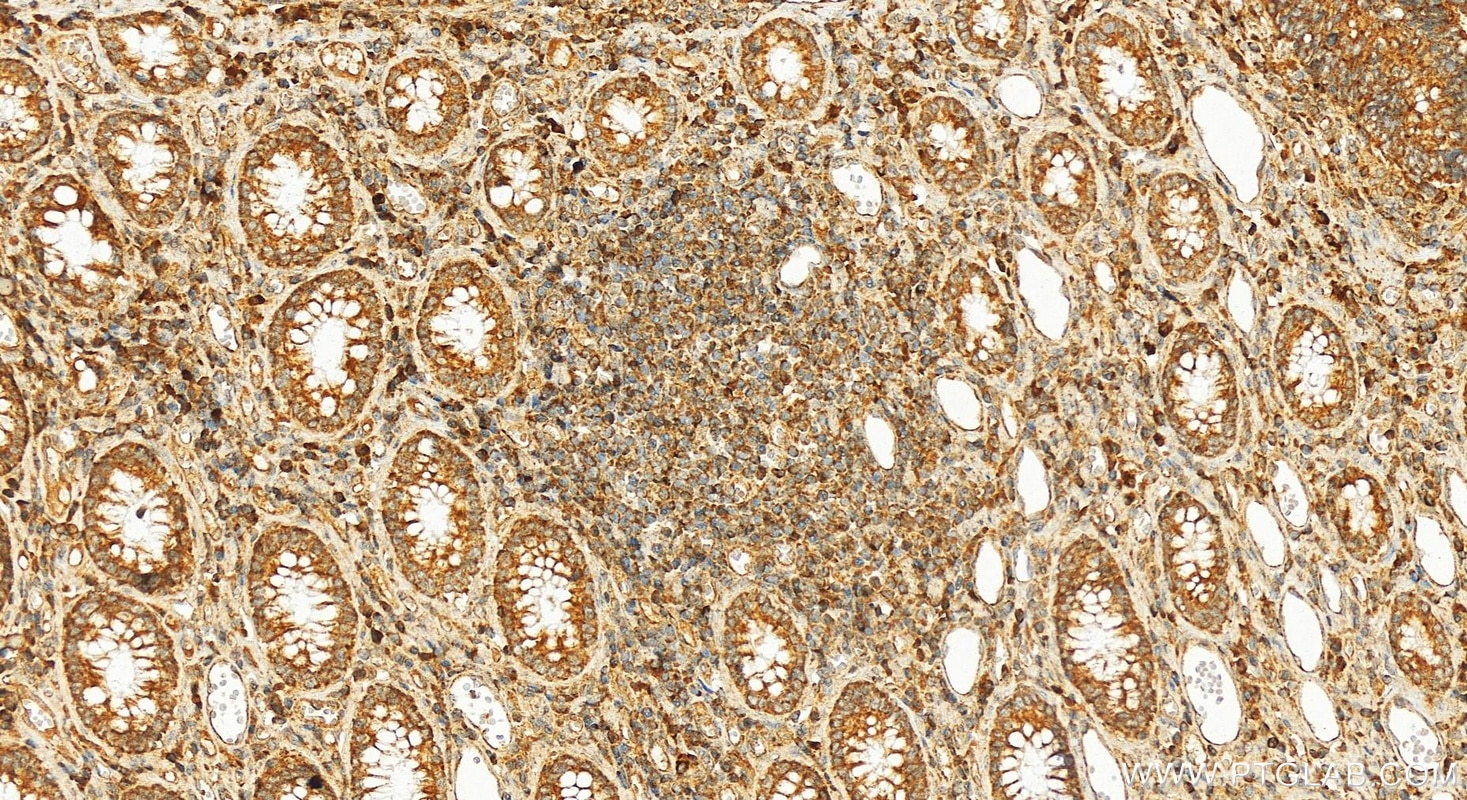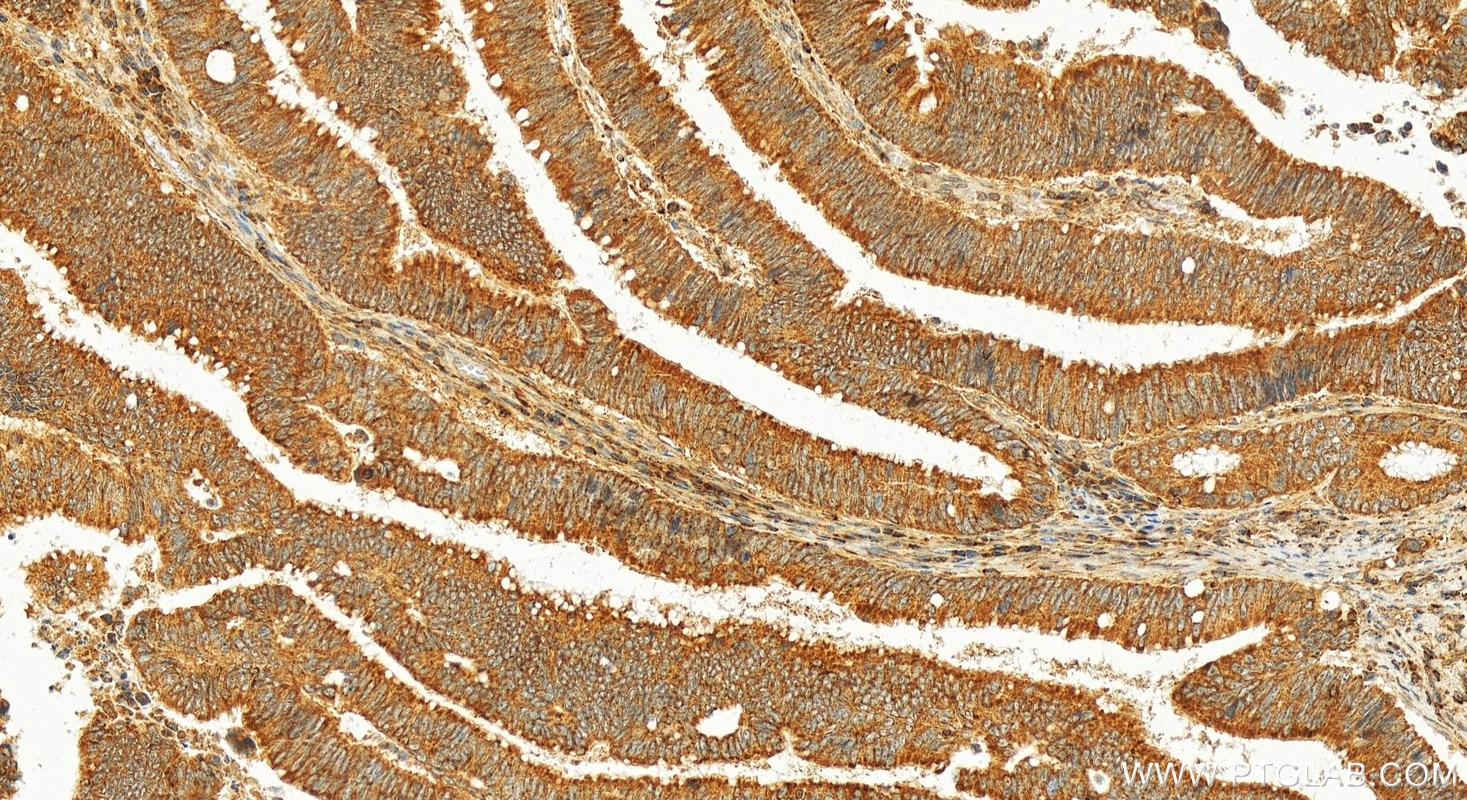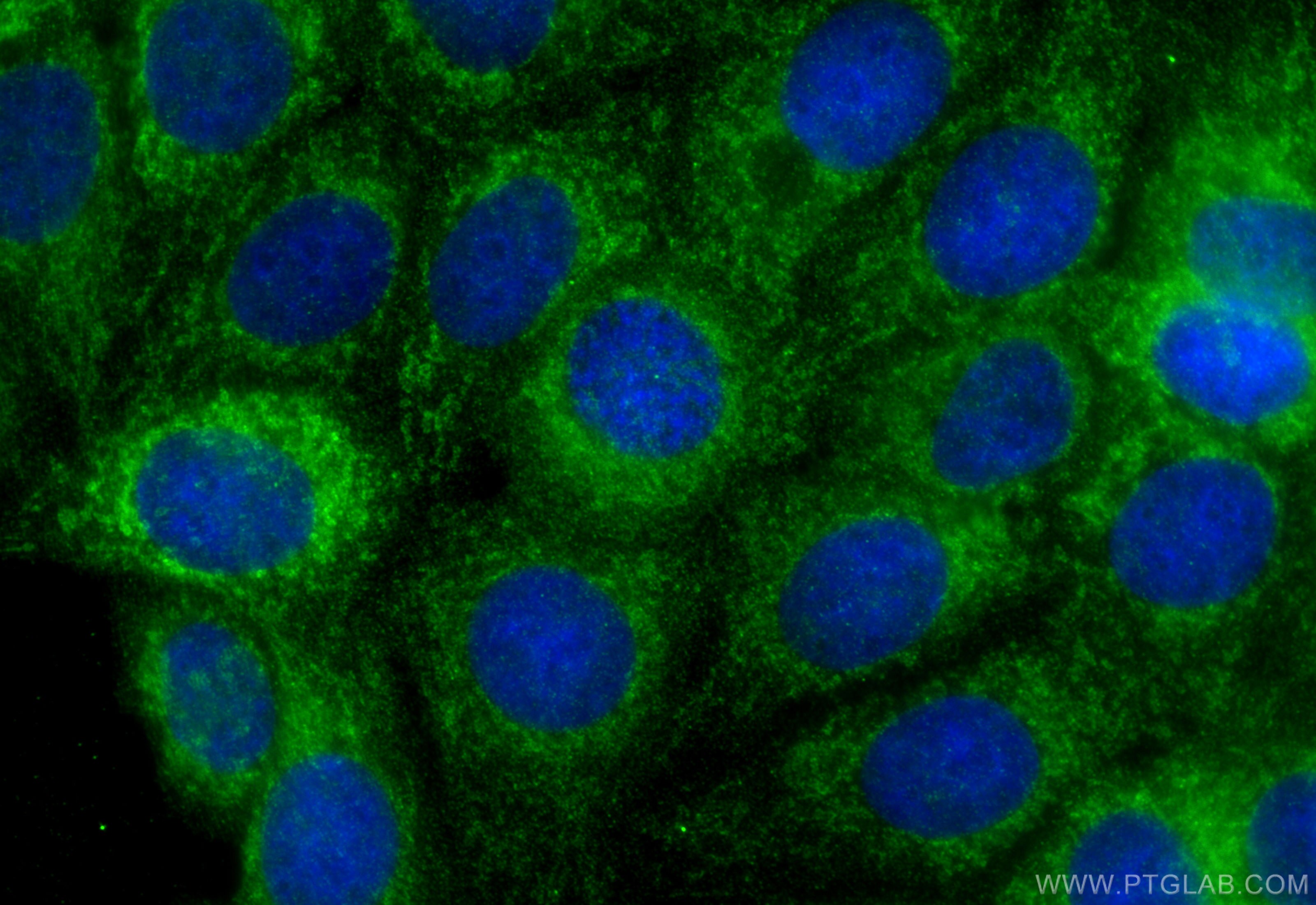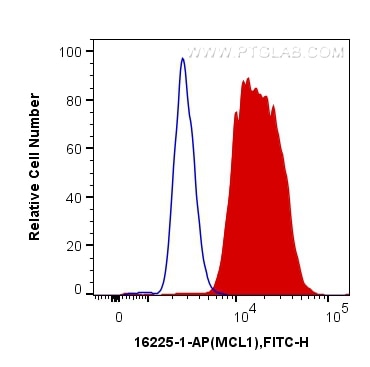Validation Data Gallery
Tested Applications
| Positive WB detected in | Jurkat cells, mouse spleen tissue, Raji cells, HL-60 cells, A431 cells, human liver tissue, HEK-293T cells, human brain tissue, K-562 cells, MCF-7 cells, HeLa cells |
| Positive IP detected in | Raji cells |
| Positive IHC detected in | human ovary cancer tissue, human colon cancer Note: suggested antigen retrieval with TE buffer pH 9.0; (*) Alternatively, antigen retrieval may be performed with citrate buffer pH 6.0 |
| Positive IF/ICC detected in | MCF-7 cells |
| Positive FC (Intra) detected in | Ramos cells |
Recommended dilution
| Application | Dilution |
|---|---|
| Western Blot (WB) | WB : 1:1000-1:8000 |
| Immunoprecipitation (IP) | IP : 0.5-4.0 ug for 1.0-3.0 mg of total protein lysate |
| Immunohistochemistry (IHC) | IHC : 1:50-1:500 |
| Immunofluorescence (IF)/ICC | IF/ICC : 1:50-1:500 |
| Flow Cytometry (FC) (INTRA) | FC (INTRA) : 0.50 ug per 10^6 cells in a 100 µl suspension |
| It is recommended that this reagent should be titrated in each testing system to obtain optimal results. | |
| Sample-dependent, Check data in validation data gallery. | |
Published Applications
| KD/KO | See 11 publications below |
| WB | See 136 publications below |
| IHC | See 16 publications below |
| IF | See 7 publications below |
| IP | See 7 publications below |
| CoIP | See 1 publications below |
Product Information
16225-1-AP targets MCL1 in WB, IHC, IF/ICC, FC (Intra), IP, CoIP, ELISA applications and shows reactivity with human, mouse, rat samples.
| Tested Reactivity | human, mouse, rat |
| Cited Reactivity | human, mouse, rat |
| Host / Isotype | Rabbit / IgG |
| Class | Polyclonal |
| Type | Antibody |
| Immunogen |
CatNo: Ag10397 Product name: Recombinant human MCL1 protein Source: e coli.-derived, PGEX-4T Tag: GST Domain: 1-327 aa of BC107735 Sequence: MFGLKRNAVIGLNLYCGGAGLGAGSGGATRPGGRLLATEKEASARREIGGGEAGAVIGGSAGASPPSTLTPDSRRVARPPPIGAEVPDVTATPARLLFFAPTRRAAPLEEMEAPAADAIMSPEEELDGYEPEPLGKRPAVLPLLELVGESGNNTSTDGSLPSTPPPAEEEEDELYRQSLEIISRYLREQATGAKDTKPMGRSGATSRKALETLRRVGDGVQRNHETAFQGMLRKLDIKNEDDVKSLSRVMIHVFSDGVTNWGRIVTLISFGAFVAKHLKTINQESCIEPLAESITDVLVRTKRDWLVKQRGWDGFVEFFHVEDLEGG 相同性解析による交差性が予測される生物種 |
| Full Name | myeloid cell leukemia sequence 1 (BCL2-related) |
| Calculated molecular weight | 350 aa, 37 kDa |
| Observed molecular weight | 35-40 kDa |
| GenBank accession number | BC107735 |
| Gene Symbol | MCL1 |
| Gene ID (NCBI) | 4170 |
| RRID | AB_2143977 |
| Conjugate | Unconjugated |
| Form | |
| Form | Liquid |
| Purification Method | Antigen affinity purification |
| UNIPROT ID | Q07820 |
| Storage Buffer | PBS with 0.02% sodium azide and 50% glycerol{{ptg:BufferTemp}}7.3 |
| Storage Conditions | Store at -20°C. Stable for one year after shipment. Aliquoting is unnecessary for -20oC storage. |
Background Information
MCL-1 is an anti-apoptotic member of the Bcl-2 family originally isolated from the ML-1 human myeloid leukemia cell line. Similar to BCL2 and BCL2L1, MCL1 can interact with BAX and/or BAK1 to inhibit mitochondria-mediated apoptosis. Mcl-1 is critical for the proliferation and survival of myeloma cells in vitro, and overexpression of Mcl-1 protein in myeloma cells is associated with relapse and short event-free survival in multiple myeloma patients. Recent studies show that MCL-1 is upregulated in numerous haematological and solid tumour malignancies. Therefore, MCL-1 has been suggested as a potential new therapeutic target. MCL-1 can be alternatively spliced into a long form (MCL-1L, 40 kDa) or a short form (MCL-1S, 30 kDa). (PMID: 15467463, PMID: 15147382)
Protocols
| Product Specific Protocols | |
|---|---|
| FC protocol for MCL1 antibody 16225-1-AP | Download protocol |
| IF protocol for MCL1 antibody 16225-1-AP | Download protocol |
| IHC protocol for MCL1 antibody 16225-1-AP | Download protocol |
| IP protocol for MCL1 antibody 16225-1-AP | Download protocol |
| WB protocol for MCL1 antibody 16225-1-AP | Download protocol |
| Standard Protocols | |
|---|---|
| Click here to view our Standard Protocols |
Publications
| Species | Application | Title |
|---|---|---|
Mol Cell The mitochondrial DNAJC co-chaperone TCAIM reduces α-ketoglutarate dehydrogenase protein levels to regulate metabolism | ||
Nat Commun Small-molecule suppression of calpastatin degradation reduces neuropathology in models of Huntington's disease. | ||
Nat Commun MCL-1 gains occur with high frequency in lung adenocarcinoma and can be targeted therapeutically. | ||
Nat Commun IFN-β is a macrophage-derived effector cytokine facilitating the resolution of bacterial inflammation. | ||
EBioMedicine The LIV-1-GRPEL1 axis adjusts cell fate during anti-mitotic agent-damaged mitosis. | ||

